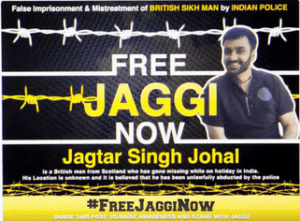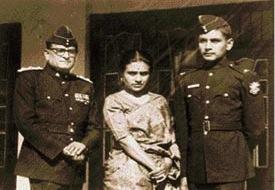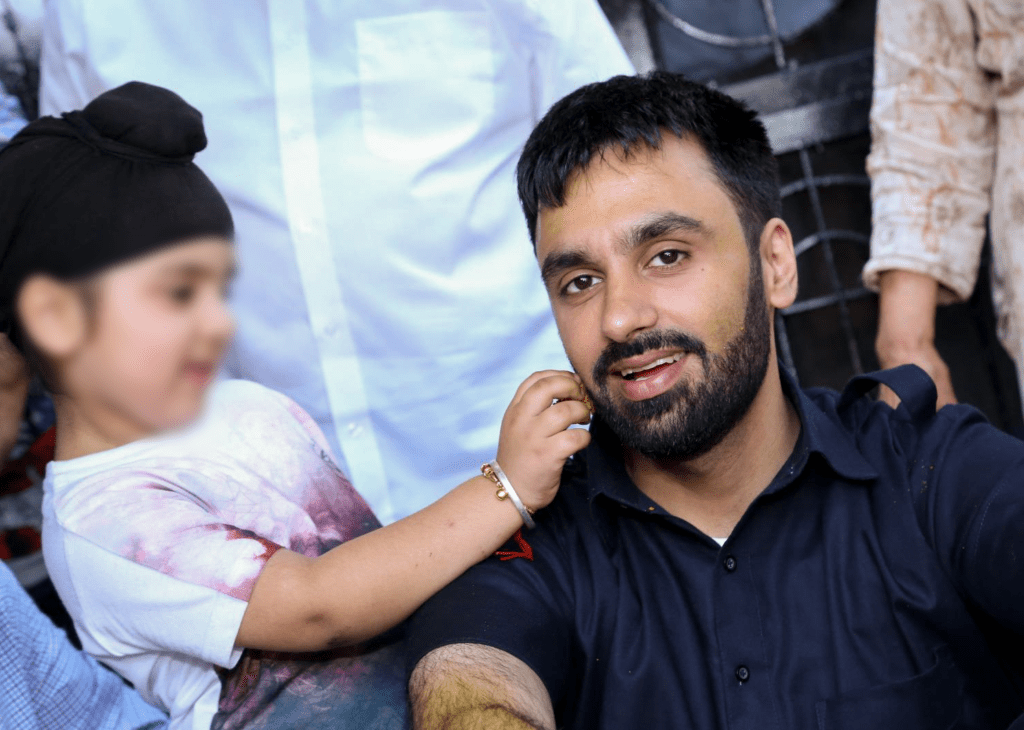
There is increasing disquiet about new developments in the case of Jagtar Singh Johal.
Human rights group Reprieve point to the unearthing of evidence that the British intelligence agencies, MI5 and MI6, may well have contributed to Johal’s detention and torture by tipping off the Indian authorities, this they say is made worse when there was indeed a real risk that Johal could be tortured or face the death penalty in India.
At the point of detention Johal was a British blogger involved with a website speaking out about human rights violations against Sikhs in India. The site for which Johal translated for – neverforget84, is in fact a reference to the year Indian troops stormed Sikhism’s holiest site, the Golden Temple. Under the pretext of flushing out ‘militants’ many innocent pilgrims were brutally murdered by the Indian army. We have every right to speak up against human riots violations in India and elsewhere – but it maybe that Britain’s spy chiefs at the behest of the British government don’t quite see it that way?
If what is alleged transpires to be true, then this is the second betrayal of Sikhs by British authorities who were revealed to have send an SAS officer to advise India in the run up to Operation Bluestar. When our director raised the persecution of Sikhs by India in 1984 with a senior government official here, he was told about the consequences speaking up would have on Anglo-Indian trade deals. In short, the British government dispensed with human rights in order to secure lucrative military contracts with India, in particular the Westland helicopter deal. In 1984 a cabinet secretary remarkably told Lord Singh, ‘Indarjit, we know exactly what is going on, it’s very difficult; we’re walking on a tightrope: we have already lost one important contract’.
If spy agencies did tip off India on Johal, perhaps Anglo-Indian trade is the motivation, but if so, what would that tell you about Britain’s priorities?
Johal’s UK lawyers Leigh Day have lodged a claim in the high court against the Foreign Office, Home Office and attorney general, which alleged that the intelligence services tipped off India despite the risks of torture. Of course, this means the government has not commented on the allegations and won’t do so whilst the case takes its passage through the courts.
Meanwhile a statement from the all-party parliamentary group (APPG) on extraordinary rendition said that if substantiated, the allegations suggested the UK had facilitated arbitrary detention and torture.
It’s co-chairs, Stephen Timms and Andrew Tyrie, said: ‘The government’s own principles on torture – designed to ensure that the UK is not involved in it – appear to have been breached. Parliament and the public cannot have confidence that the UK is not involved in kidnap and torture.’
Lord Singh of Wimbledon, Director of the Network of Sikh Organisations UK, and a Vice-Chair of The APPG for International Freedom of Religion or Belief said:
‘The UK recently hosted an international conference to emphasise the importance of freedom of belief throughout the world. Its claim to be a world leader in promoting freedom of belief and freedom of expression will be seen to be hollow if it is found to acquiesced in yet another betrayal of the Sikh community’.


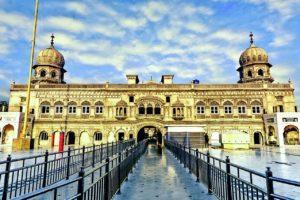
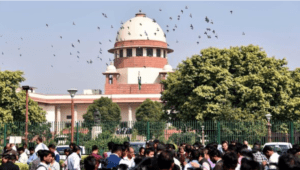 ‘Sikhs should be wary of Hinduism’s capacity to act like ‘the boa constrictor of the Indian forests’ in absorbing other faiths and beliefs.’
‘Sikhs should be wary of Hinduism’s capacity to act like ‘the boa constrictor of the Indian forests’ in absorbing other faiths and beliefs.’